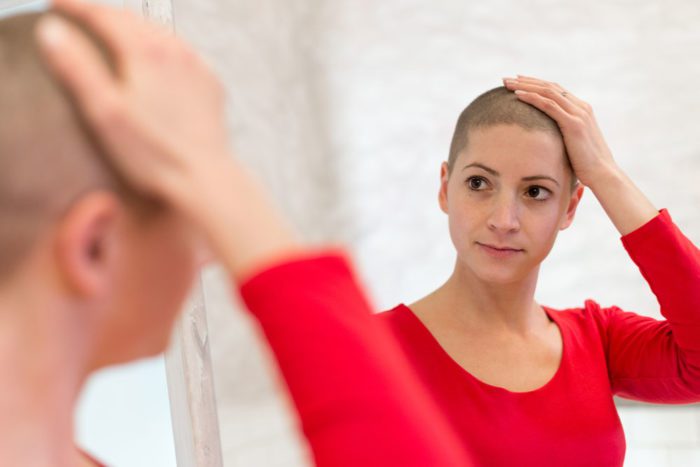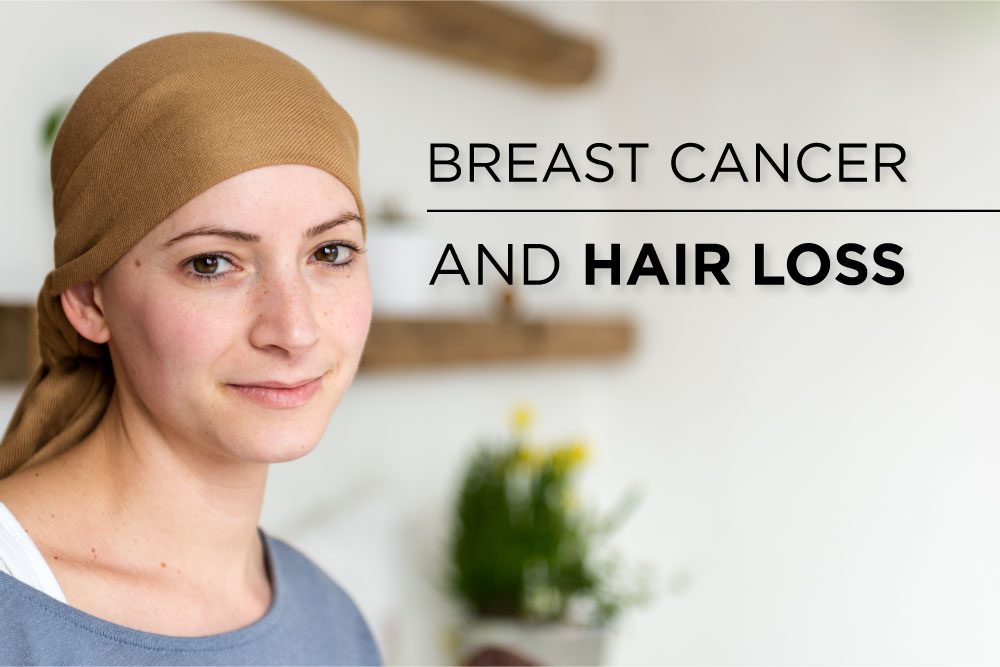This October for Breast Cancer Awareness Month we spoke with one of our loyal customers who shared with us what it was like to be diagnosed, how her first question was “Will I lose my hair?” and how Hairatin fibers helped in her emotional healing process.
Is breast cancer the most common cancer for women?
One out of every eight women will develop breast cancer in their lifetime; this is considered average risk for U.S. women. It is by far the most common cancer in women worldwide. However, most of the deaths occur in low and middle-income countries, where women who are diagnosed with it are in already very late stages of the illness. This is due to a lack of awareness on early detection or struggles to receive proper health care.
Early detection is key.
“According to the American Cancer Society, when breast cancer is detected early, and is in the localized stage, the 5-year relative survival rate is 99%. Early detection includes doing monthly breast self-exams, and scheduling regular clinical breast exams and mammograms.” – National Breast Cancer Foundation, INC.
Unfortunately, this is not the case a vast majority of women with unfavorable socio-economic conditions. Because of this, donating is one of the best ways you can help women worldwide before, during and after breast cancer diagnosis.
Who is at high risk for breast cancer?
High risk for breast cancer means a one in five chance of developing breast cancer over a lifetime. We all know someone — a coworker, family member such as a mother, sister, daughter or friend — that has been diagnosed with this disease.
First and foremost, know your family history. This is an important initial step.
Yolanda, 42, shared with us how she found out about her breast cancer during some routine blood tests. Because of her hypothyroidism, she went for regular blood tests every 4-5 months. And in one of those, something was not quite right.
Two of her aunties have had breast cancer, so she knew what to expect. But still, her first question was: “Will I lose my hair?”

Does cancer cause hair loss?
The short answer is no. Cancer does not cause hair loss. It’s the treatment itself, the chemotherapy and radiation, what causes hair to fall out.
Chemotherapy is a treatment where powerful drugs are used to target rapidly dividing cells in the body. As it targets the “bad” cancer cells, other good cells are affected as well. Some of these good cells are in your hair follicles, which, like bad cancer cells, rapidly divide as part of the natural hair growth cycle.
“As a woman, losing hair with breast cancer is much more than just physical. There’s a big emotional toll that comes along with it… your eyelashes and eyebrows, when they’re gone the shock can be very devastating”, shares Yolanda.
Looking after your hair during (and after) breast cancer treatment.
Chemo hair loss can be tough. But actually, noticing hair loss can stress you out and this stress can cause even more hair to fall out. Fortunately, there are steps you can take to break this vicious cycle while your hair follicles recover to their normal growth.
“I tried hair covers like wigs or scarves while I underwent treatment. They worked, but only temporarily. When my hair grew back, I didn’t want to hide it. But the bald spots were too much and it made me insecure… A cancer buddy recommended Hairatin Fibers”.
Hair Fibers: A healthy, non-invasive hair loss solution.
Depending on the treatment, your hair loss can be partial or total. In most cases there will still be enough hair vellus left in your scalp where hair fibers can adhere to.
Hairatin Fibers will make the thinnest of strands appear fuller and thicker, reducing the visibility of bald spots –and extra added stress. The upside? You’re enhancing your already existing hair! Making it a healthy, non-invasive solution for your body.
Just make sure you choose one that does not contain ammonia, as it can be harmful if you are undergoing treatment. Ammonia dries up the scalp and may promote breakage. So, if your hair follicles are weak due to treatment, you should stay away from it.
Yolanda shares, “I ordered a bottle and tried it out. The second I saw my full, healthy looking hair my heart stopped. I felt myself again. And empowered. I felt how everything I had gone through had made me even stronger. More beautiful. It was the start of another healing process: my emotional healing. I recommended it to my entire group of cancer ladies. They still use them.”
You might also like: Losing Hair with Cancer for more advice on how to deal with hair loss before, during and after a cancer treatment.
A journey to healing.
If you or someone you love has been diagnosed with breast cancer, know that it’s OK to feel worried about hair growth after chemo. The side effects will eventually subside. Some people even get their whole head full of hair while still undergoing treatment.
Whether you have a fast or slow hair growth after chemo, remember that solutions like Hairatin Fibers will always be available for you.
Your hair follicles are still alive, and will recover at their own pace. Most importantly, YOU are still alive! So let’s celebrate that, and the more than 3.8 million breast cancer survivors in the United States alone today.
For more information on how to raise money for cancer research, please visit the Breast Cancer Research Foundation.





